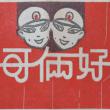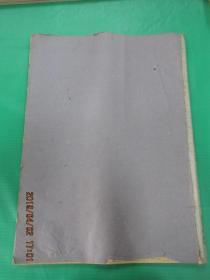
Hot Water Music
¥ 260 九品
仅1件
河南濮阳市
认证卖家担保交易快速发货售后保障
作者Charles Bukowski
出版社Black Sparrow Press
出版时间1983-10
装帧其他
货号20103C
上书时间2024-05-27
- 在售商品 暂无
- 平均发货时间 8小时
- 好评率 暂无
- 店主推荐
- 最新上架
商品详情
- 品相描述:九品
图书标准信息
- 作者 Charles Bukowski
- 出版社 Black Sparrow Press
- 出版时间 1983-10
- ISBN 9780876855966
- 装帧 其他
- 开本 其他
- 纸张 其他
- 【内容简介】
- Hot Water Music is a collection of short stories by Charles Bukowski, published in 1983. The collection deals largely with: drinking, women, gambling, and writing. It is an important collection that establishes Bukowski's minimalist style and his thema
- 【作者简介】
-
Charles Bukowski
As famous for his notorious lifestyle as for his visceral poetry and prose, the late Charles Bukowski mined his experiences on America's mean streets to become one of the 20th century's most influential and widely imitated writers.
Biography
During the course of his long, prolific literary career, Charles Bukowski was known as a poet, novelist, short story writer, and journalist. But it is as a cult figure, an "honorary beat" who chronicled his notorious lifestyle in raw, unflinching poetry and prose, that he is best remembered. Born in the aftermath of World War I to a German mother and an American serviceman of German descent, he was brought to the U.S. at the age of three and raised in Los Angeles. By all accounts, his childhood was lonely and unhappy: His father beat him regularly, and he suffered from debilitating shyness and a severely disfiguring case of acne. By his own admission, he underwent a brief flirtation with the far right, associating as a teenager with Nazis and Nazi sympathizers. After high school, he attended Los Angeles City College for two years, studying art, literature, and journalism before dropping out.
Although two of his stories were published in small literary magazines while he was still in his early 20s, Bukowski became discouraged by his lack of immediate success and gave up writing for ten years. During this time he drifted around the country, working odd jobs; fraternizing with bums, hustlers, and whores; and drinking so excessively that he nearly died of a bleeding ulcer.
In the late 1950s, Bukowski returned to writing, churning out copious amounts of poetry and prose while supporting himself with mind-numbing clerical work in the post office. Encouraged and mentored by Black Sparrow Press publisher John Martin, he finally quit his job in 1969 to concentrate on writing full time. In 1985, he married his longtime girlfriend Linda Lee Beighle. Together they moved to San Pedro, California, where Bukowski began to live a saner, more stable existence. He continued writing until his death from leukemia in 1994, shortly after completing his last novel, Pulp.
Bukowski mined his notorious lifestyle for an oeuvre that was largely autobiographical. In literally thousands of poems, he celebrated the skid row drunks and derelicts of his misspent youth; and, between 1971 and 1989, he penned five novels (Post Office, Factotum, Women, Ham on Rye, and Hollywood) featuring Henry Chinaski, an alcoholic, womanizing, misanthrope he identified as his literary alter ego. (He also wrote the autobiographical screenplay for the 1987 film Barfly, starring Mickey Rourke and Faye Dunaway.) Yet, for all the shock value of his graphic language and violent, unlovely images, Bukowski's writing retains a startling lyricism. Today, years after his death, he remains one of the 20th century's most influential and widely imitated writers.
点击展开
点击收起
— 没有更多了 —
















以下为对购买帮助不大的评价